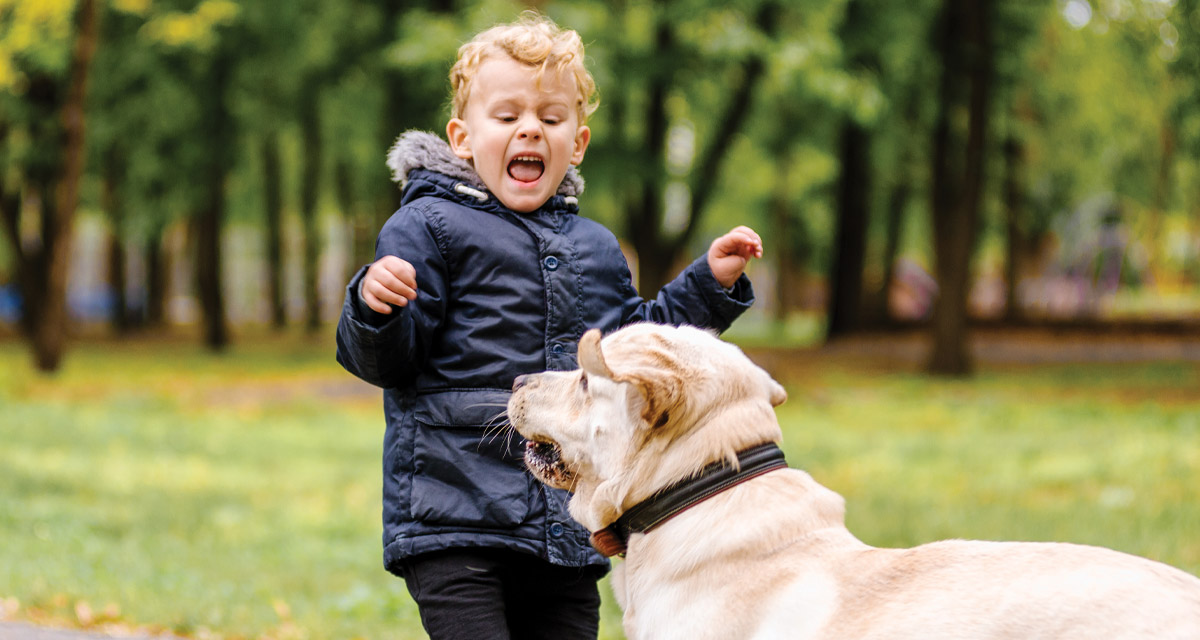Children can have a lot of fears. One of those fears that can be difficult to deal with is a fear of animals. Maybe they don’t like dogs or cats, or perhaps any animal can make them afraid. It might be something that happened to them that causes a fear, or it can be totally irrational. Either way, that fear is very real to them, and as their parent or caregiver, you have to understand it and help the child deal with it.
The biggest problem with a child being afraid of animals is that they are everywhere. If you don’t have pets in your home, it is likely that your neighbors or friends do. This means that at some point, you have to think about your child being faced with a situation where their fear is brought to the forefront. Other types of fear can be avoided. But this is a fear that you just can’t escape.
So, what do you do? As a parent or caregiver of a child with this fear, you obviously want to be able to help the child navigate this fear in the healthiest way possible. It also isn’t always an option to isolate the child from animals, so you need to have some coping mechanisms in place to help both of you deal with this situation when it occurs. Here are a few tips.
Talk about Why
If your child is verbal, ask them about their fear. Maybe they were frightened by a specific experience or they get more frightened by animals that are larger than them. You won’t know if you don’t ask. And getting the specifics can help you ease their fear.
Validate the Fear
It is very important to tell your child that you understand that they are afraid and that, even if it is irrational, it is very real to them. They won’t be able to trust you to help them work through it if they don’t think you understand how they are feeling.
Ask About Animals and Prepare
When you are invited to someone’s house, be sure to ask if they have animals and let them know your child is afraid. By doing this, the expectation is set that there may be a problem and everyone will be prepared to handle it. Let your child know that animals will be present and ask the host to help you introduce your child to the animal slowly.
Introduce Animals Slowly
Always be prepared to introduce your child to animals slowly in a controlled way. Look at the animal through a door or behind a fence before getting your child any closer. This will give your child a chance to prepare for the encounter and can be very helpful.
Reward Successful Encounters
When your child has a successful encounter with an animal, be sure to praise them. It is also helpful to point out the joy that they may have experienced when the fear did not take over the situation.
Take Small Steps in the Right Direction
Taking your child to the pet store or to the local animal shelter can go a long way in getting them used to animals. Often times, the employees in these establishments will tell you which animals are easier to approach and more gentle. A few trips over time may really make a difference in easing the fear.
If All Else Fails, Seek Professional Help
If you feel like nothing is working, and your child’s fear is getting worse, it may be time to seek professional help. Start by talking to your child’s pediatrician. They will be able to provide you with the tools you need to help you deal with the issue and refer you to the proper resources.
All children have fears; it is completely normal. If this is the fear that your child is facing, be hopeful that using these tips can help your child move forward and get more comfortable facing that fear.























